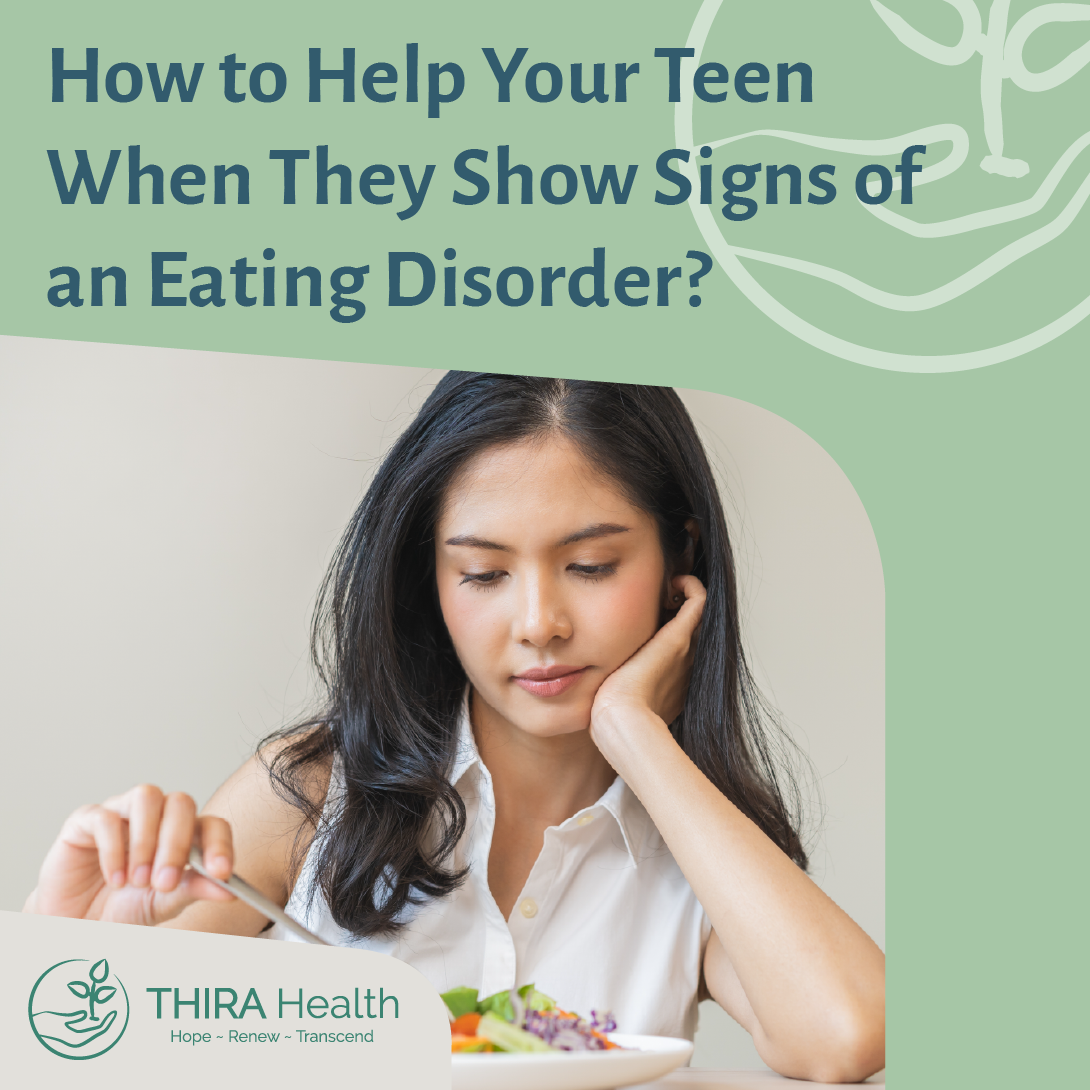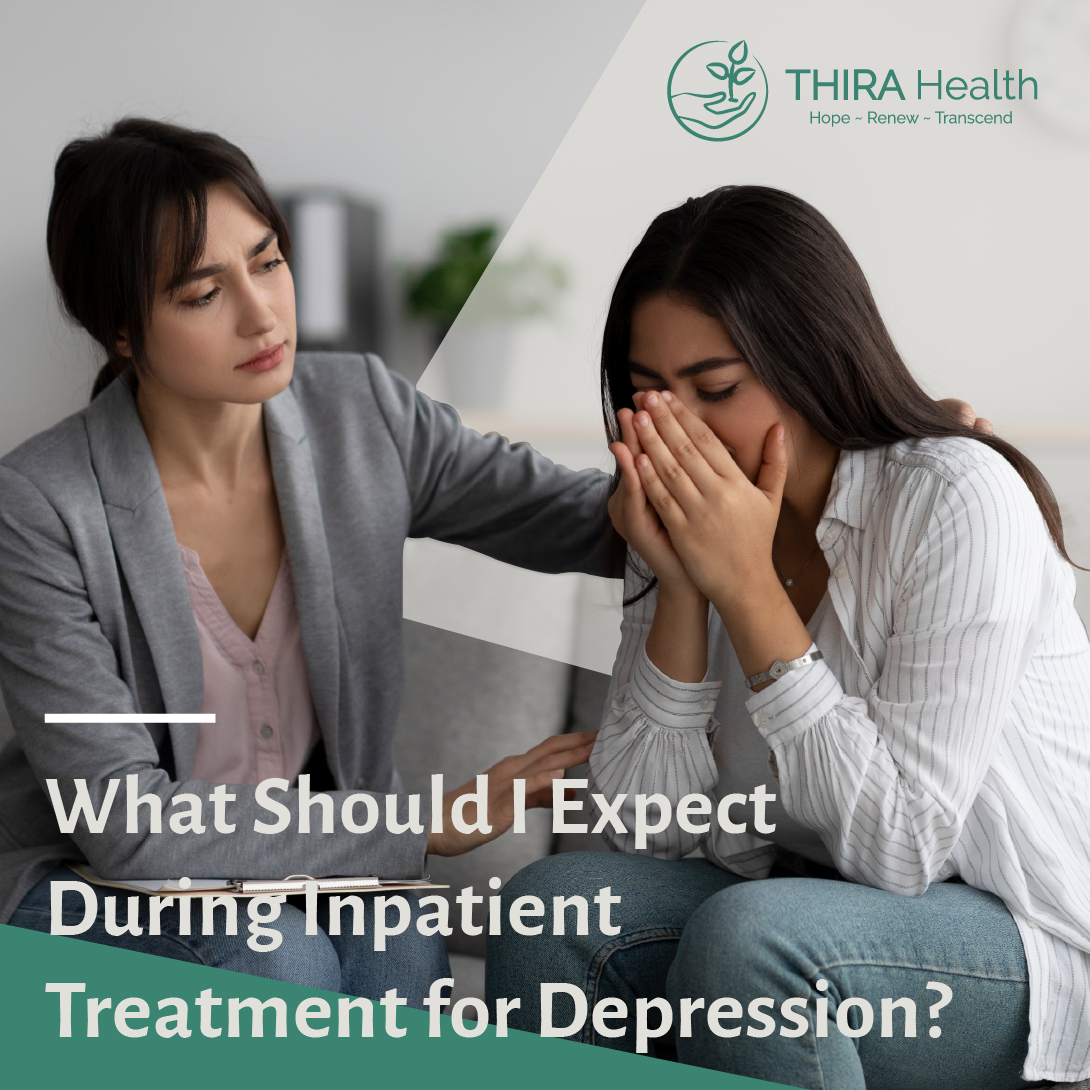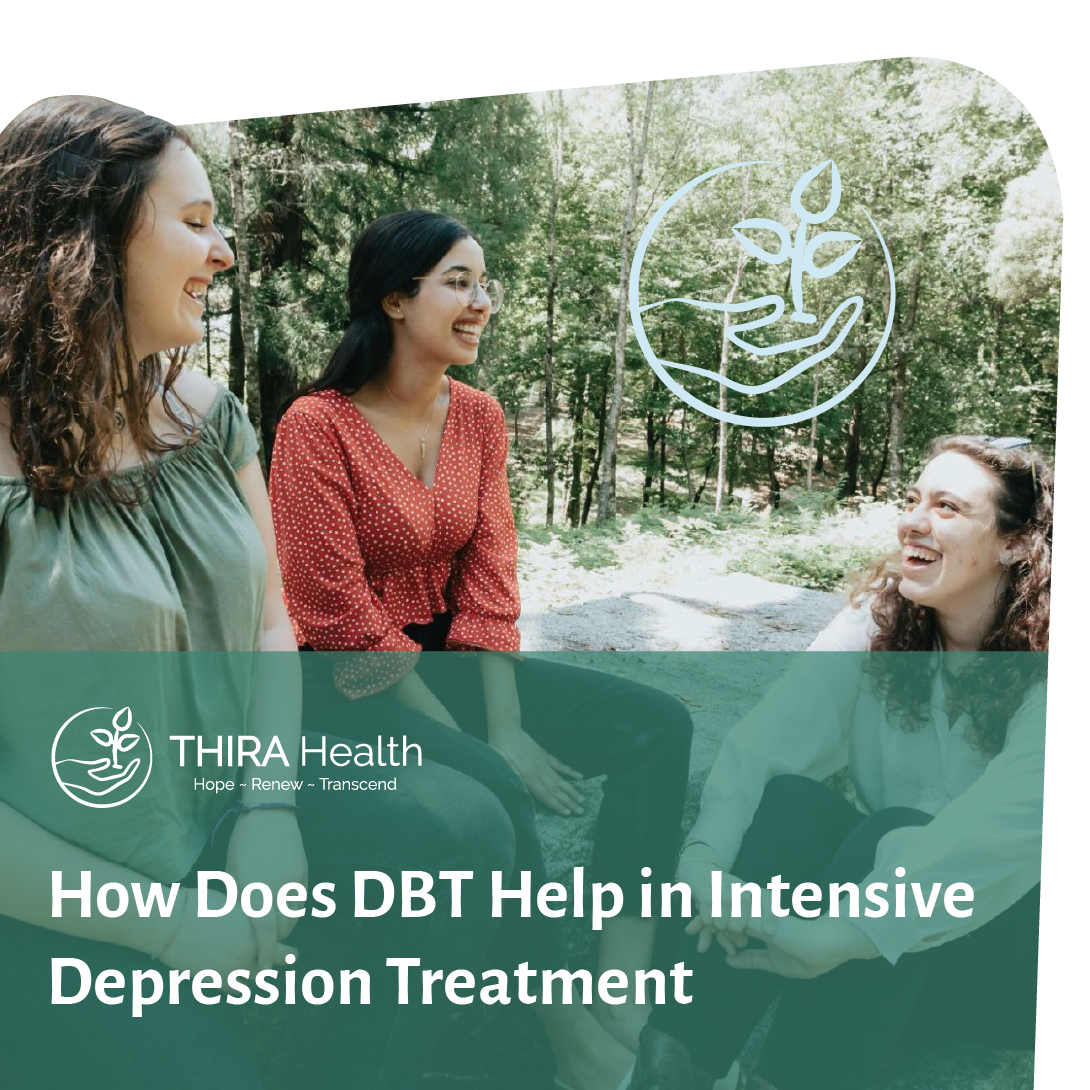Eating disorders and recovering from them can be a very emotional and delicate time. Many people find themselves missing the comfort and familiarity of the routines they had during their eating disorder and may be surprised to find themselves grieving this transition. Likely, it’s led you to wonder, “Is grieving my eating disorder normal?” It can be incredibly confusing to grieve your past when you are in recovery, and everyone around you is happy that you are doing better. This is a common and valid experience for individuals in eating disorder (ED) recovery.
We are here to help you understand and process this grief so you can get to the point where you too are proud of yourself and can acknowledge how brave and strong you are. For more information on what services and resources are available for those in ED recovery, please feel free to reach out and see how THIRA Health can support you.
Grieving the Loss of Your Way of Life in ED Recovery
In general, grief is a natural emotional response to a significant loss, characterized by a range of intense and complex feelings. These may include feelings of anguish, sadness, regret, and apprehension about the future. The experience of grief can be influenced by a variety of factors, such as the nature of the loss, an individual’s personal beliefs and coping strategies, and their support network.
Any change, even good or positive change, can trigger a grief response, and this is actually a frequent occurrence in eating disorder recovery. The idea of “grieving your eating disorder” refers to the process of acknowledging and processing the emotional impact of living with (and subsequently, without) an eating disorder. Eating disorders are complex mental health conditions that can be characterized by disordered eating patterns, negative body image, and a range of physical and emotional symptoms.
For many individuals, living with an eating disorder can be a traumatic and isolating experience that can take a significant toll on their mental health and overall well-being. But grieving an eating disorder also involves acknowledging the reasons someone was compelled to begin and maintain disordered eating habits. For example, the sense of control, a daily routine or structure, a physical image closer to their idealized body type, or a reliable coping skill to use when emotions become overwhelming. Research confirms that many eating disorders, especially those that were formed as a result of grief or trauma, serve as coping skills for some individuals in the forms of self-soothing, discharge of emotions, self-cleansing, self-punishment, avoidance of feelings and providing structure or routine.
Recovery from eating disorders require a complete reorganization of how someone approaches and deals with their emotions, and it makes sense why, in the midst of all that change, we long for the familiar, easy road.
The Stages of Grief
The five stages of grief have become incredibly popularized in our cultural understanding of grief. Although these were initially developed as a roadmap to help understand how someone comes to terms with a terminal illness, applying what we know about these fluctuating, non-linear stages can help give us some language to talk about the process of giving up an eating disorder.
Likening the severity of your loss to the loss of a loved one may help validate your feelings of sadness and/or loss, and their guidance can help you feel empowered and confident moving towards healing. Below are the 5 stages of grief and how they may apply to recovering from an eating disorder.
1. Denial.
Denial is often a common response to a diagnosis of an eating disorder. Individuals may deny that they have a problem or minimize the severity of their symptoms. Denying your eating disorder can look a lot like justifying it; “it’s just a diet,” “I’ll stop when I lose/gain 10 pounds,” or “I don’t have a problem, this works for me.”
2. Anger.
When accepting the diagnosis of an eating disorder, anger could take on many forms such as blaming (yourself or others), frustration, and dealing with criticism.
3. Bargaining.
Bargaining is the stage where you accept your diagnosis and may try to find a “new” or “healthier” way to continue your eating disorder. You may replace diet with excessive exercise, or stating, “I’ll eat more, but…” and still set limitations for yourself in terms of food and diet.
4. Depression.
As individuals begin to confront their eating disorders and the challenges of recovery, they may experience feelings of sadness, hopelessness, and despair. Whether you are depressed because your old life and routine are gone, or you are facing the reality of your diagnosis, or you feel betrayed by your body/mind, it is a valid experience to feel the weight of reality at this stage and face it. Your grief may take on an acute form in this stage, as you mourn the time and energy spent on the eating disorder and the impact it had on your life.
5. Acceptance.
Accepting you have an eating disorder and you need help is a big step. By going through the motions of grief and processing, you have allowed yourself the time and space to find the motivation to change and be a healthier version of yourself. You accept the reality, you accept the help, and you accept the changes you need to make and come to terms with your diagnosis, past, and future.
Feel What You Need to Feel
Grieving an eating disorder is a common experience for those in recovery. As with any issue affecting our mental health, it is important to process and understand what’s happening at the level of our emotions in order to be able to move on. It is important to let yourself feel these emotions to come to terms with them and be able to move forward with a sense of closure. Through the process of grieving, individuals can begin to process and make sense of their experiences, develop a greater sense of self-compassion, and move toward healing and recovery.
Eating Disorder Treatment for Women in Seattle
Eating Disorder treatment can help you find more helpful coping skills to be able to navigate this emotional time in a mindful way. Utilizing Dialectical Behavior Therapy (DBT) can help you with the co-occuring symptoms of an eating disorder and other mental health conditions that frequently occur with an ED like anxiety, depression or suicidal thoughts.
DBT stresses the importance of positive coping skills, emotional regulation and distress tolerance to address all major facets of an eating disorder to provide individuals with whole-person care. In addition, the Health at Every Size approach to eating disorder treatment that we employ here at THIRA Health can help strengthen your ability to accept your body, your situation, and your loss, and better manage the emotions of grief as you move through recovery. Remember, you do not have to go through this recovery journey alone. We are here to support, guide and educate you as you take this brave step into a happier, whole life.






